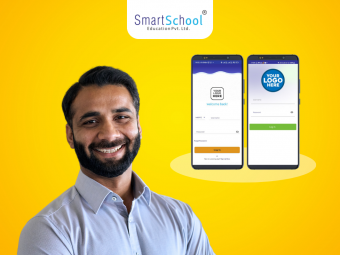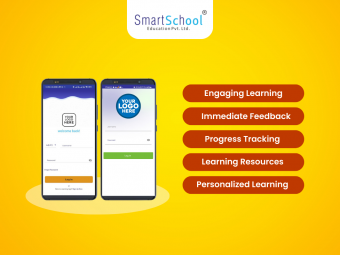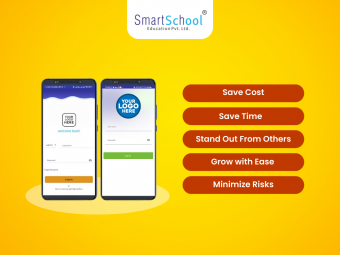In today's fast-paced world, education is evolving at an unprecedented rate, and technology plays a vital role in this transformation. Education app development has become a powerful tool to enhance the learning experience, making it more interactive, engaging, and accessible for students of all ages.
9 Steps To Build Your Edtech App
Explore the step-by-step guide on how to develop an education app, exploring the key considerations, development stages, and the significance of incorporating technology into the realm of education.
1. Research and Planning:
The initial step in Edtech app development is thorough research and planning. Identify your target audience, understand their needs, and conduct market research to gain insights into existing educational apps. This stage helps you define the goals, functionalities, and unique selling points of your app, ensuring it meets the requirements of both students and educators.
2. Defining Features and Functionality:
Based on the research findings, brainstorm and define the essential features and functionalities that will make your Edtech app stand out. Incorporate interactive learning modules, gamification elements, progress tracking, multimedia content, and collaboration tools to enhance the user experience.
Customization options, seamless navigation, and intuitive user interfaces are crucial for a successful Edtech app.
3. Design and User Interface:
A visually appealing and user-friendly interface is key to engaging users in an educational app. Collaborate with a professional UI/UX designer to create an intuitive layout, consistent color schemes, and easily recognizable icons. Ensure that the design aligns with the educational content, maintaining a balance between aesthetics and functionality.
4. Back-End Development:
The back-end development process involves building the server, database, and application programming interface (API) that enable seamless communication between the front-end and back-end components of the app. Choose a robust and scalable technology stack to handle the app's data management, security, and user authentication requirements.
5. Front-End Development:
Front-end development focuses on creating the user interface and user experience of the Edtech app. Utilize programming languages such as HTML, CSS, and JavaScript to develop responsive layouts that adapt to various devices and screen sizes. Implement smooth transitions, interactive elements, and multimedia integration to enhance the overall user engagement.
6. Integration of Content and Learning Resources:
Edtech app development involves integrating diverse content and learning resources. Partner with educational institutions, content creators, and subject matter experts to curate high-quality educational materials, including text, images, videos, and interactive exercises. Organize the content into relevant categories, making it easily accessible and searchable for users.
7. Testing and Quality Assurance:
Thoroughly test the Edtech app across multiple devices, platforms, and screen resolutions to ensure its functionality, performance, and user experience meet the highest standards. Conduct extensive quality assurance checks to identify and fix any bugs, errors, or inconsistencies. User feedback and beta testing can provide valuable insights for further improvements.
8. Deployment and Distribution:
Prepare the Edtech app for deployment by optimizing its performance, compressing files, and ensuring compliance with app store guidelines. Choose the appropriate app distribution platforms, such as Google Play Store and Apple App Store, and follow their submission procedures.
Monitor app performance and user feedback post-launch to identify areas for ongoing enhancements.
9. Continuous Improvement and Updates:
Edtech app development is an iterative process. Regularly update the app with new features, content, and improvements based on user feedback, market trends, and emerging technologies. Stay up-to-date with educational methodologies, advancements in e-learning, and changes in curriculum to provide the most relevant and effective educational experience.
Edtech app development has the power to revolutionize the way we learn, making education more engaging, interactive, and accessible. By following a systematic approach, conducting thorough research, and leveraging the expertise of developers, designers, and educational professionals, you can create a successful Edtech app that empowers learners worldwide.
Embrace the opportunities technology offers and embark on the journey of transforming Edtech through app development.
Save Your Cost and Time With Whitelabeling
Whitelabeling refers to the practice of rebranding a product or service developed by one company as if it were created by another company. In the context of edtech, a whitelabel app refers to an educational technology application that is designed and developed by one company but can be rebranded and customized by another company to appear as their own.
It allows educational institutions or businesses to offer a personalized and branded learning solution to their users without investing in the development of a new app from scratch. Whitelabel edtech apps provide flexibility, efficiency, and cost-effectiveness in delivering customized educational solutions to meet specific needs.
5 Reasons For Choosing Whitelabel Edtech App Over Building an App From Scratch
A white-label app is a pre-built, customizable solution that can be branded and tailored to meet the specific needs of an EdTech company. In this response, we will explore the reasons why EdTech companies should consider opting for a white-label EdTech app.
1. Cost and Time Efficiency:
Building an EdTech app from scratch requires significant investment in terms of time, money, and resources. Development teams need to be assembled, and the entire development process can be time-consuming.
On the other hand, a white-label EdTech app eliminates the need for starting from scratch. It provides a ready-to-use framework that can be customized and deployed quickly. This reduces development costs and significantly accelerates time to market, allowing EdTech companies to focus on their core competencies and educational content.
2. Scalability and Flexibility:
White-label EdTech apps are designed to be highly scalable and flexible. They offer a robust infrastructure that can handle a large number of users, ensuring smooth and uninterrupted learning experiences. By choosing a white-label solution, EdTech companies can benefit from the app's scalability without worrying about the technical complexities of building and maintaining a scalable platform.
Additionally, white-label apps provide flexibility in terms of customization. Companies can easily incorporate their branding elements, tailor the app's features, and align it with their unique educational offerings.
3. Proven and Reliable Technology:
White-label EdTech apps are built using tried and tested technologies. These solutions have undergone rigorous testing and iterations to ensure their reliability, performance, and security. Choosing a white-label app allows EdTech companies to leverage the expertise of experienced developers who have already addressed common challenges and implemented industry best practices.
This reduces the risks associated with technical glitches, data breaches, and other issues that could potentially arise when building an app from scratch.
4. Focus on Core Competencies:
Developing an EdTech app requires a diverse set of skills, including software development, UI/UX design, testing, and maintenance. By opting for a white-label solution, EdTech companies can avoid the complexities of managing an in-house development team and can instead focus on their core competencies, such as curriculum development, content creation, and instructional design.
This enables them to concentrate their resources on improving the quality and effectiveness of their educational offerings, ultimately enhancing the learning experience for their students.
5. Ongoing Support and Updates:
Choosing a white-label EdTech app ensures that EdTech companies receive continuous support and updates from the app's provider. This includes bug fixes, feature enhancements, and security patches. By relying on the expertise of the white-label app provider, companies can stay up-to-date with the latest industry trends and technological advancements without having to invest additional time and resources in app maintenance.
Read More: How To Create An Edtech App For K-12 Students?
Get Your Own Edtech App With SmartSchool's Whitelabel Edtech Solution
Get an interactive learning app along with digital content from nursery to class 12th and a powerful teaching app, all white labelled in your own institute’s brand name with SmartSchool's Whitelabel Edtech Solution.
Features Of SmartSchool’s Whitelabel Edtech App Solution
- 50k+ HD Videos - Animated and Anchor Based Videos
- 2 Million+ Learning Resources
- Huge Question Bank Of 1,00,000+ Questions
- 3,000+ Publishers Mapped For Personalized Learning
- 10,000+ Interactive Tools For Revision
- CBSE, ICSE and All Major Indian State Boards
- Bilingual Content - Both In Hindi and English
- Real-Time Tracking of Student Performance
- Monitor Progress and Content Usage Report
- Special Learning Zone for Dyslexia Students
- Real Life Videos and Science Experiments
- Easily Switch Between Offline and Online Content Mode
- Diagrams, Mapwork, History Timelines & Toppers Answers
- HOTs, Previous Year Question Papers & Formulae Master
- Change video speed, Search content and bookmark favourite videos
- Live classes, Fee Tracking, Assignments and Attendance
- WhatsApp, App notifications and Email platform
To know more, call 8927089270.
In conclusion, EdTech companies can greatly benefit from choosing a white-label EdTech app over building an app from scratch. The cost and time efficiency, scalability and flexibility, proven technology, ability to focus on core competencies, and ongoing support are compelling reasons to consider a white-label solution. By making this choice, EdTech companies can expedite their entry into the market, deliver high-quality educational experiences, and stay ahead in the rapidly evolving landscape of online education.




Leave your comment